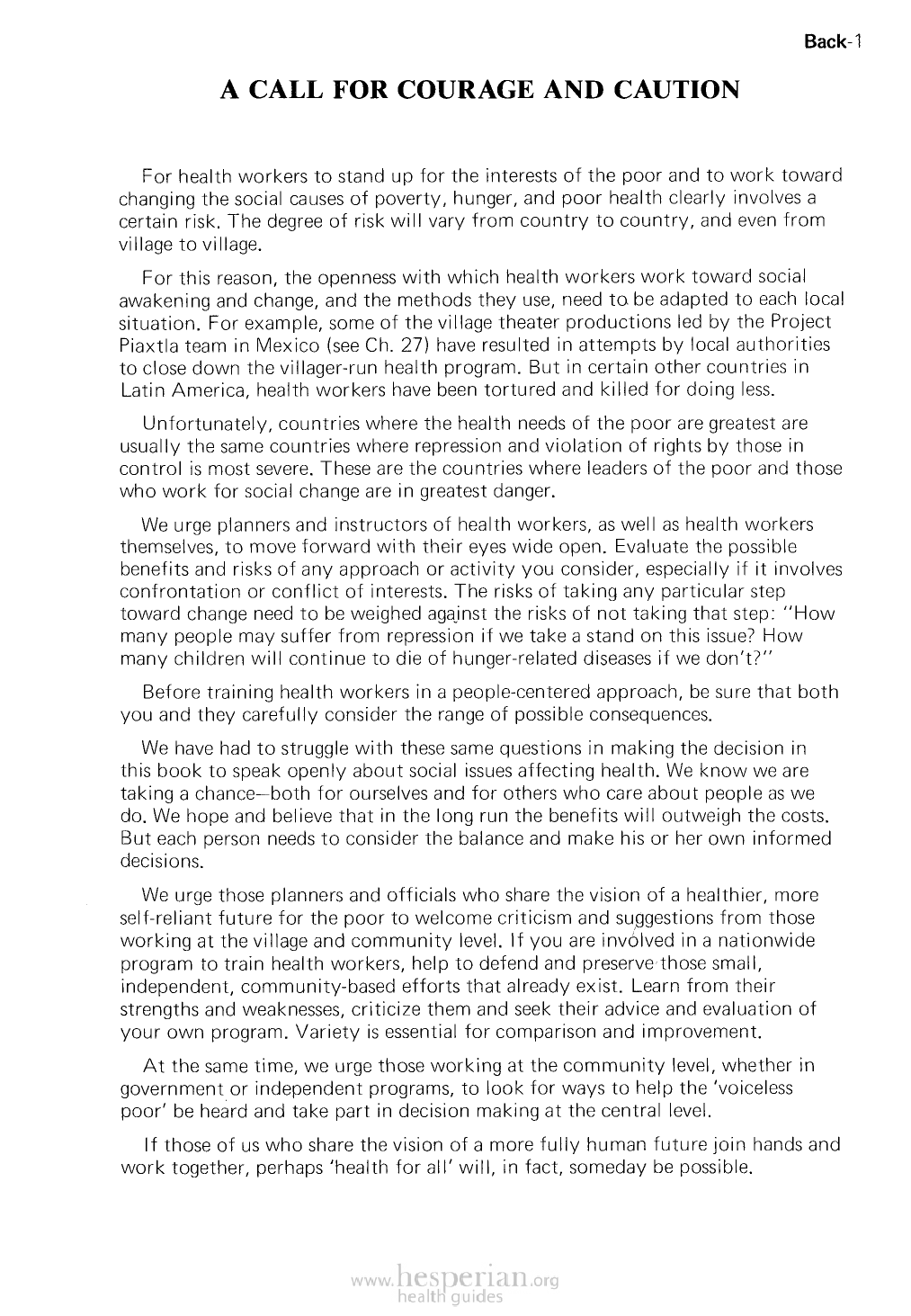
A CALL FOR COURAGE AND CAUTION
Back-1
For health workers to stand up for the interests of the poor and to work toward
changing the social causes of poverty, hunger, and poor health clearly involves a
certain risk. The degree of risk will vary from country to country, and even from village
to village.
For this reason, the openness with which health workers work toward social
awakening and change, and the methods they use, need to be adapted to each local
situation. For example, some of the village theater productions led by the Project
Piaxtla team in Mexico (see Ch. 27) have resulted in attempts by local authorities to
close down the villager-run health program. But in certain other countries in Latin
America, health workers have been tortured and killed for doing less.
Unfortunately, countries where the health needs of the poor are greatest are usually
the same countries where repression and violation of rights by those in control is
most severe. These are the countries where leaders of the poor and those who work
for social change are in greatest danger.
We urge planners and instructors of health workers, as well as health workers
themselves, to move forward with their eyes wide open. Evaluate the possible
benefits and risks of any approach or activity you consider, especially if it involves
confrontation or conflict of interests. The risks of taking any particular step toward
change need to be weighed against the risks of not taking that step: “How many
people may suffer from repression if we take a stand on this issue? How many
children will continue to die of hunger-related diseases if we don’t?”
Before training health workers in a people-centered approach, be sure that both you
and they carefully consider the range of possible consequences.
We have had to struggle with these same questions in making the decision in
this book to speak openly about social issues affecting health. We know we are
taking a chance—both for ourselves and for others who care about people as we
do. We hope and believe that in the long run the benefits will outweigh the costs.
But each person needs to consider the balance and make his or her own informed
decisions.
We urge those planners and officials who share the vision of a healthier, more self-
reliant Inline for the poor to welcome criticism and suggestions :rom those working at
the village and community level. If you are involved in a nationwide program to train
health workers, help to defend and preserve those small, independent, community
based efforts that already exist Learn from their strengths and weaknesses, criticize
them and seek their advice and evaluation of your own program. Variety is essential
for comparison and improvement.
At the same time, we urge those working at the community level, whether in
government or independent programs, to look for ways to help the ‘voiceless poor’ be
heard and take part in decision making at the central level.
If those of us who share the vision of a more fully human future join hands and
work together, perhaps ‘health for all’ will, in fact, someday be possible.